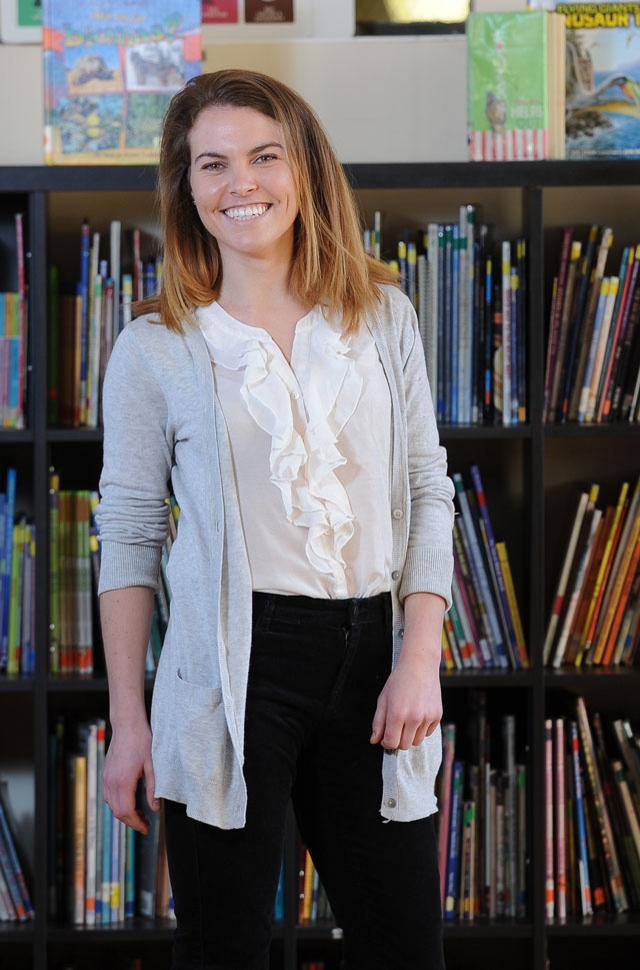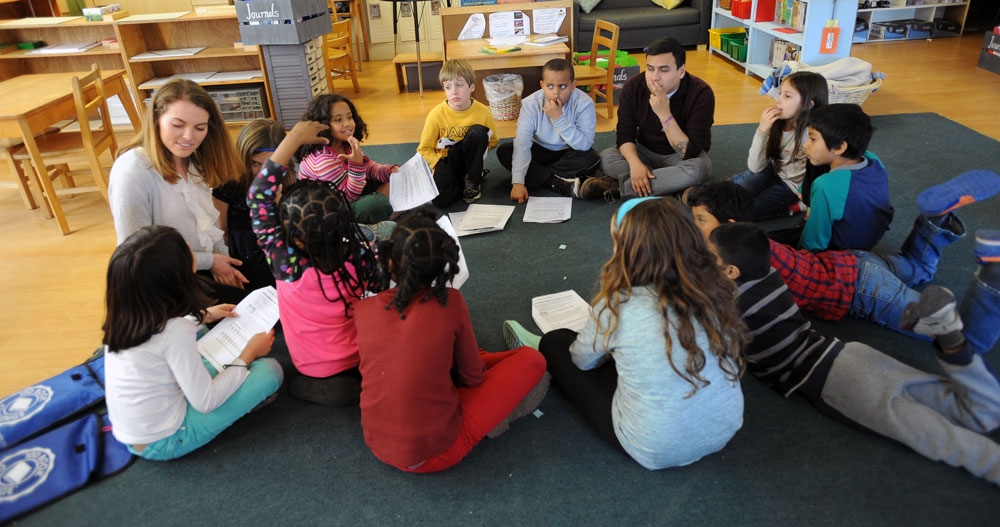
Senior nursing major Kelly Dossena is surrounded by a group of giggling second graders at a bilingual charter school in northwest Washington, D.C. She tapes an eye chart to the wall and asks them in Spanish to form a line and take turns reading the letters on the chart. One by one they read the letters as Dossena explains what it means to have 2020 vision.

For Dossena, the lesson on eyes is part of her internship this semester at the Latin American Montessori Bilingual Public Charter School, where almost 58 percent of the students are Latino. Because of her experience at the school, Dossena says she’s considering the possibility of one day working as a nurse in Latin America.
The internship is part of Catholic University’s Spanish for Health Care Certificate Program, which is unique among colleges and universities in the Washington, D.C., area. Established by the Department of Modern Languages and Literatures in conjunction with the School of Nursing, the program teaches students to communicate in Spanish and to be aware of the cultural and linguistic factors that play a critical role in health care, says Jennifer Maxwell, program director and lecturer in Spanish.
Patricia McMullen, dean of nursing, notes that the Spanish for Health Care program “aligns perfectly with the nursing school’s mission, which stresses ethics, values, and spirituality in health care. Teaching our students to better communicate with Latino patients reflects the nursing school's commitment to providing the best possible care for all patients.”
Up to 40 percent of Catholic University’s nursing majors complete the certificate. The program has two tracks: basic for nonnative speakers and advanced for native speakers and those with near-native fluency.

Dossena says she enrolled in the program because she knew it would be helpful to have the certificate on her résumé. The nursing major, who started the program as a freshman, is on the advanced track. She notes that certificate courses and her internship have proven helpful during her nursing clinicals at Inova Alexandria Hospital in Virginia, where many of her patients speak only Spanish.
Sophomore nursing major Pierina Jijon, says she’s “really made a connection” with the Hispanic clients at the Spanish Catholic Center in the Columbia Heights neighborhood of Washington, D.C., where she has an internship this semester. Jijon, who was born in the small town of Portoviejo, Ecuador, recently helped to recruit patients for a Saturday program on diabetes at the center run by Catholic Charities of the Archdiocese of Washington.
“When I called them, I learned how difficult it can be for some people to take advantage of health care opportunities,” she says. “A lot of people don’t drive. Men who are in construction have to take jobs that are on a Saturday. Because of my internship, I won’t be surprised when I start my clinicals or a job in the real world.”